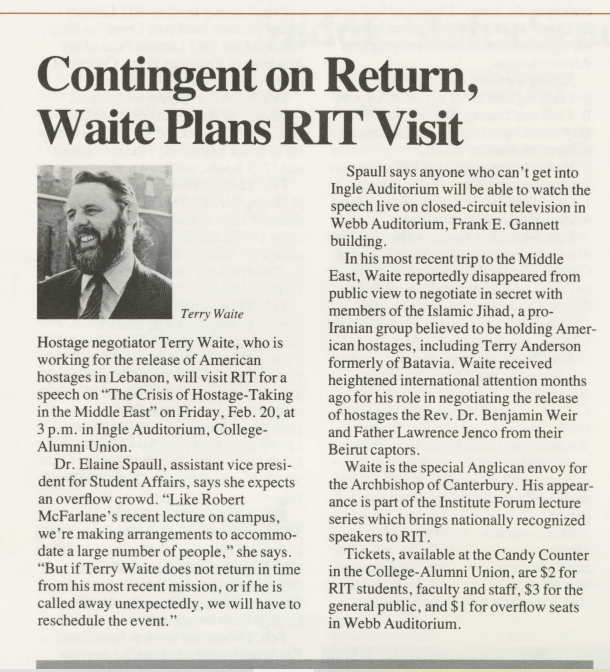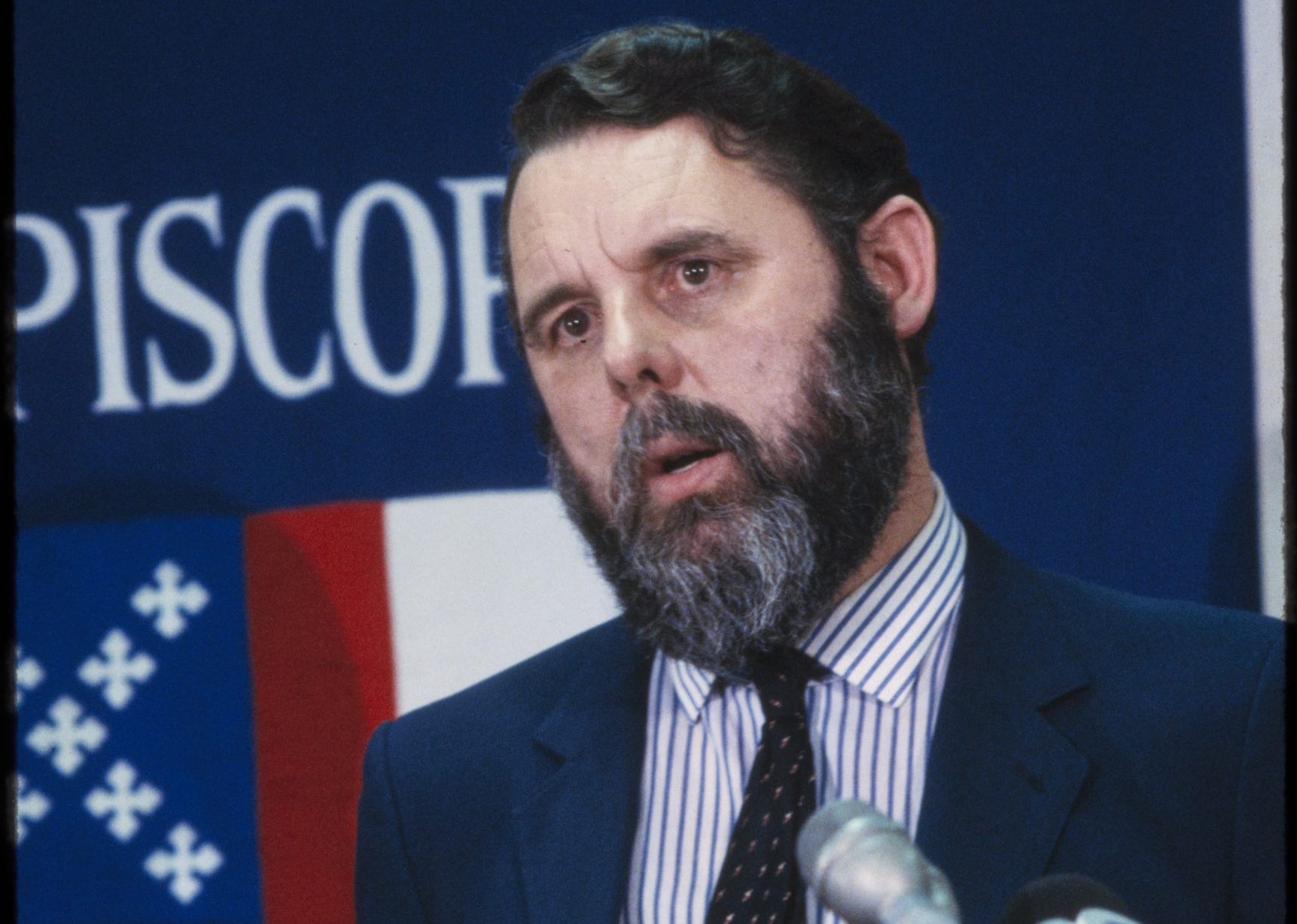
Terry Waite in 1985
John Major, Prime Minister of the United Kingdom, 19 November 1991
Terry Waite, an English humanitarian and negotiator, is best known for his peacekeeping efforts and the time he spent as a hostage in Lebanon. However, the early years of his life set the foundation for his later work and resilience.
Early Life: Facilitating Dialogues and Building Bridges
Terry Waite was born on 31st May 1939 in Styal, Cheshire, England. He was brought up in a religious environment, which had a profound influence on his values and beliefs. From an early age, Waite felt a calling to serve others, and this led him to the Church of England.
Waite’s education began in his village school. His commitment to the church and his natural leadership skills soon became apparent. He went on to study at the College of Ascension in Selly Oak, Birmingham, which further cemented his dedication to religious and humanitarian causes.
In the 1960s, Terry Waite worked as a missionary and an advisor for the Archbishop of Canterbury in East Africa. This role exposed him to various cultural, religious, and political challenges, and he played a vital role in facilitating dialogues and building bridges between conflicting parties. This early exposure to conflict resolution and peacekeeping, combined with his deep faith, would later lead Waite to undertake significant roles in the international arena, mediating hostage crises and advocating for peace.
Terry Waite‘s early life was marked by a deep commitment to his faith and a drive to serve others. His upbringing, education, and early experiences in missionary work and conflict resolution laid the foundation for his later endeavors in peacekeeping and humanitarian efforts.
Negotiator in Hostile Surroundings
From the security perspective, the geopolitical landscape of the 1980s was tense. The Cold War entered into the phase of escalated tensions, an agitated and aggressive phase, involving the concern about the nuclear threat.
The rivalry between the United States and the Soviet Union further solidified its dominance as a key factor in global geopolitics. NATO deployed Pershing II missiles, and the Warsaw Pact countered with SS-20 missiles. The Iran-Iraq war exacerbated regional instability as various nations supported opposing factions, compounding the overall regional turmoil. Several countries in Central and South America experienced civil war insurgencies during the 1980s, often with involvement or influence from the US and the Soviet Union.
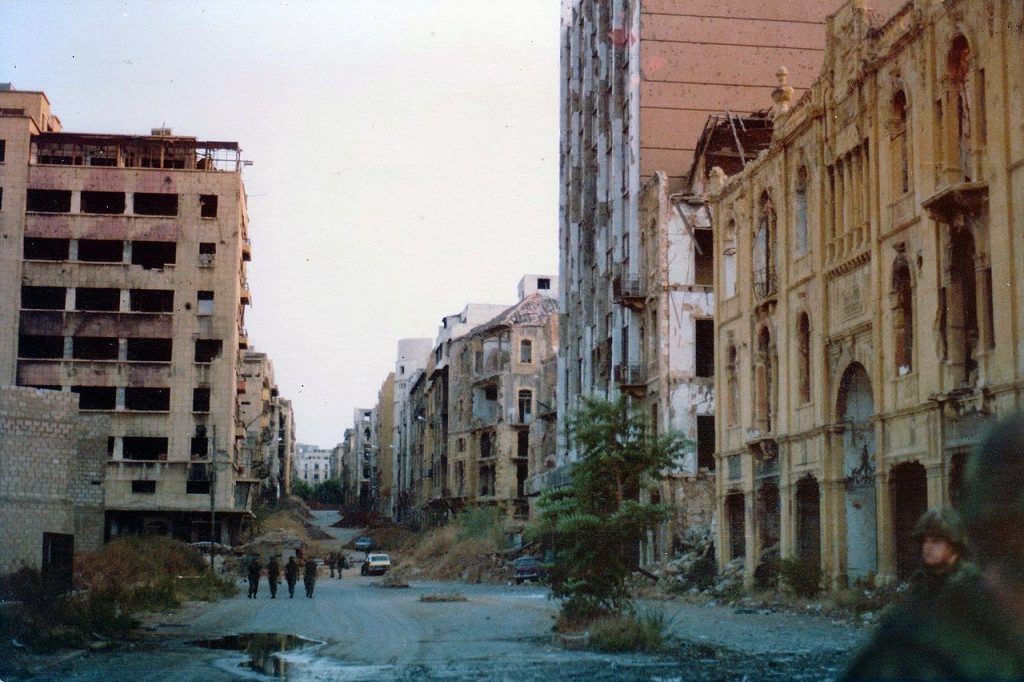
The Middle East remained a hotbed of conflict, with the Iran-Iraq war, the Israeli-Palestinian conflict, and the 1982 Lebanon War. This decade laid the groundwork for the transformation of the global geopolitical landscape into a multipolar world as we know it today.
Before Captivity
In the hostile geopolitical environment of the Cold War, before his captivity in Lebanon, Terry Waite made several notable successes in his diplomatic career. He was involved in various diplomatic efforts and humanitarian missions. He was especially successful in hostage negotiations, mediation and humanitarian work, and advocacy for prisoners and hostages.
Conflict zones, including Iran and Libya, were the areas where he achieved the most significant successes. Several hostages such as British journalist John McCarthy were released thanks to his skillful diplomatic efforts. Waite also greatly distinguished himself as an excellent humanitarian and mediator. As an envoy to the archbishop of Canterbury, Waite engaged in humanitarian and peacebuilding efforts in conflict zones around the world. By using his position and influence to advocate for the rights and humane treatment of prisoners and hostages, Terry Waite was a strong voice for the voiceless that contributed to the release of hostages and the promotion of peace.
Although some critics argue Terry Waite’s approach of engaging with kidnappers and hostage-takers was controversial and set a dangerous precedent that may have encouraged further abductions, his actions were often driven by a deep commitment to humanitarian causes and a strong desire to secure the release of hostages.
A Visit to Lebanon
Terry Waite, a special envoy of the Archbishop of Canterbury, was taken hostage in Lebanon in January 1987 while attempting to secure the release of Western hostages. He was held captive for nearly five years, with the majority of that time spent in solitary confinement.
Terry Waite’s visit to Lebanon and subsequent kidnapping took place during a period of significant security instability in the country. The 1980s were marked by the Lebanese Civil War and its aftermath.
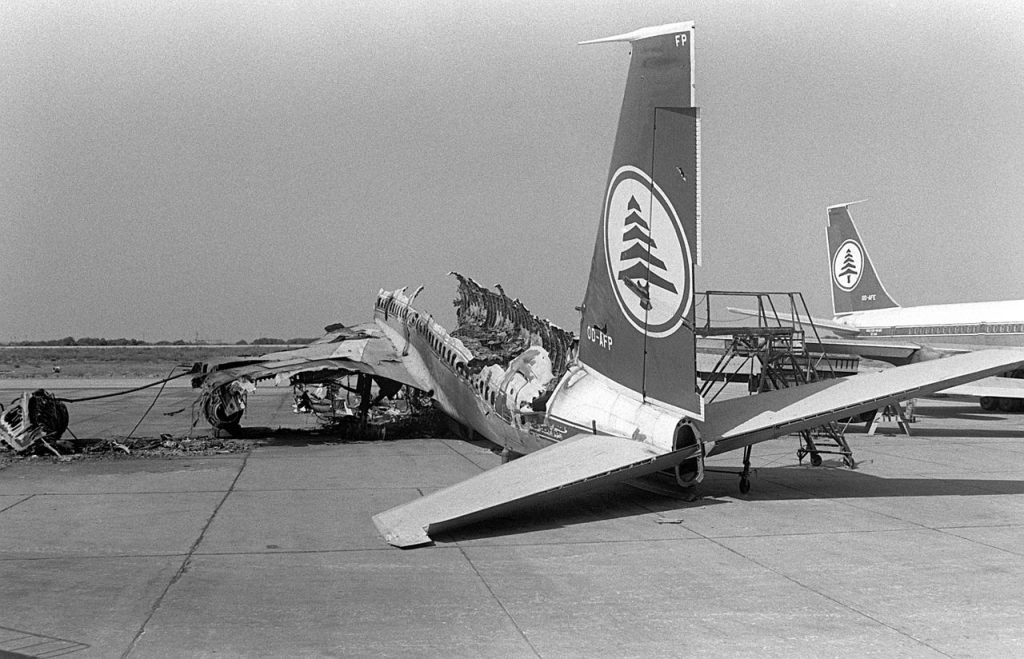
So, the security situation was highly volatile. Apart from the Lebanese Civil War that brought widespread destruction and breakdown of law and order, the country became a battleground for proxy conflicts between regional and international powers, including the United States and the Soviet Union. Various Lebanese militias and factions received support from external actors. Kidnappings, often for political and sectarian reasons, were common in Lebanon during this period. Many Westerners, including journalists, diplomats, and humanitarian workers, were targeted by different groups for various political objectives.
Hostage of Islamic Jihad Organization
The Islamic Jihad Organization (IJO) was a Lebanese Shia militia that gained notoriety in the 1980s for its involvement in several high-profile kidnappings of Western hostages in Lebanon, including the abduction of Terry Waite. This group had close ties to Iran. It emerged in Lebanon in the early 1980s, during the Lebanese Civil War.
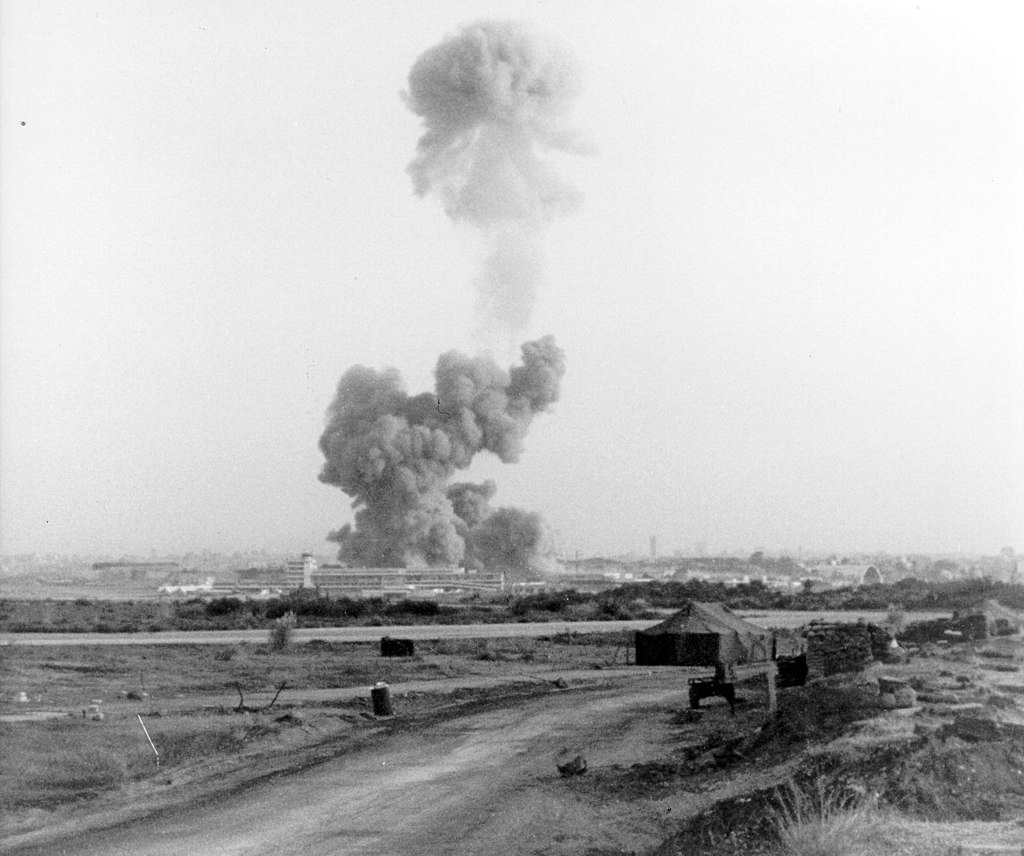
The group’s ideology was rooted in radical Shiite Islamism and opposition to perceived Western Imperialism and influence in the region. Their objectives were to resist and oppose foreign intervention in Lebanon, particularly that of Western countries and Israel. They believed that taking Western hostages and demanding concessions would advance their political goals. They, along with other extremist groups, embarked on a campaign of kidnapping Western nationals in Lebanon during the 1980s. They often used the hostages as bargaining chips to secure the release of imprisoned militants, ransom payments, or political concessions.
Terry Waite, an Anglican Church envoy, traveled to Lebanon in 1987. He had the intention of negotiating the release of Western hostages, including the journalist Terry A. Anderson and Thomas Sutherland, Dean of Agriculture at the American University of Beirut in Lebanon. However, while in Beirut, he was kidnapped by members of the Islamic Jihad Organization who accused him of being a Western spy and subjected him to captivity. Terry Waite was held captive by the IJO for nearly five years. He was released in November 1991. The negotiations for his release were complex and involved various intermediaries, including diplomats, religious leaders, and humanitarian organizations. Ultimately, a combination of negotiations, pressure, and diplomatic efforts contributed to his release.
The IJO’s activities declined in the early 1990s, with the end of the Lebanese Civil War and international efforts to secure the release of the hostages. The group’s role became less prominent as Lebanon moved towards a period of relative stability. Terry Waite’s activities and kidnapping highlight the complex and dangerous nature of hostage-taking and extremist actions during the tumultuous period in Lebanon affected by the changing landscape of international security.
Release and Post-Release
Waite’s release on November 18, 1991, was met with immense relief and joy, not just in the UK but globally. The circumstances surrounding his release were intricate, related to a series of negotiations and shifting political landscapes in the Middle East. The end of the Cold War, the shifting dynamics in Lebanon, and the efforts of international diplomats and organizations all played a role in securing his freedom.
Upon his release, Terry Waite was in relatively good health given the circumstances of his captivity. He had endured long periods of solitary confinement and was often chained to a wall. Despite this, he emerged both mentally and physically resilient, although he had naturally lost weight and showed signs of the stress from his years in captivity.
When Waite returned to the UK, he was received as a national hero. There was immense public sympathy and admiration for his courage, resilience, and dedication to the cause of peace and reconciliation. The British public and media closely followed updates about his health and well-being.
Waite’s captivity had drawn attention to the plight of hostages and the complexities of Middle East politics. His release was not just a personal triumph but was symbolic of the hope for peace and resolution in a region marked by conflict.
In the years following his release, Terry Waite continued to advocate for peace, reconciliation, and humanitarian causes. His experiences as a hostage gave him a unique perspective on suffering, resilience, and the human spirit, themes he often discussed in his writings and public appearances.
Impact: The Importance of Understanding and Empathy in Resolving Conflicts
Terry Waite is an emblematic figure, known not only for his humanitarian efforts but also for the personal sacrifices he made in the pursuit of peace. Throughout his life, he has been driven by a commitment to justice, reconciliation, and the alleviation of suffering.
After his release, Waite could have easily retreated from public life, but he chose to continue his work. He became an author, penning several books that detailed his experiences and reflections on peace, captivity, and reconciliation. He also co-founded the charity ‘Hostage UK’ to support hostages and their families.
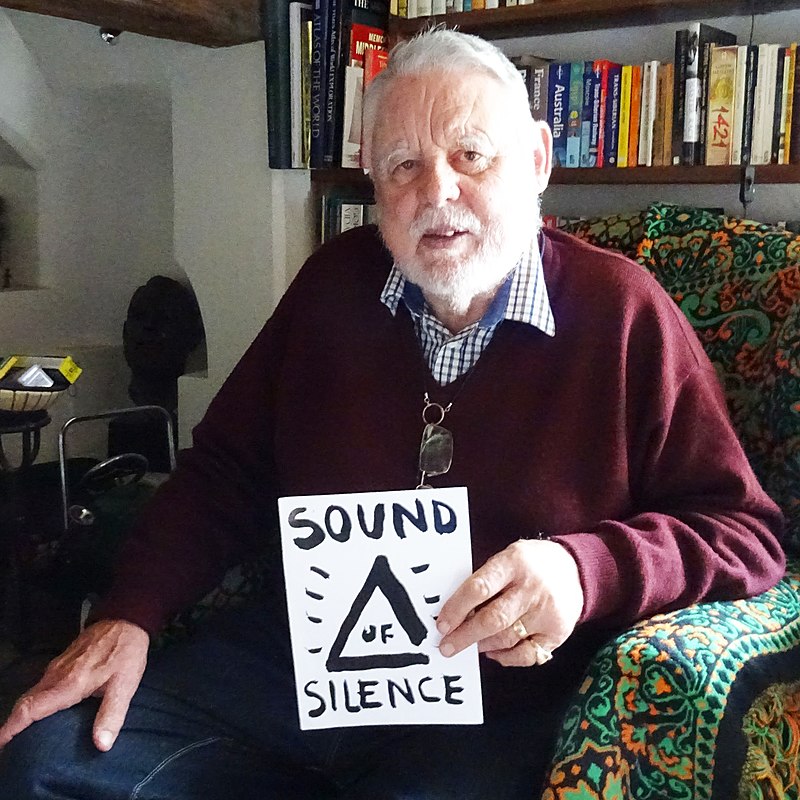
Terry Waite has been a global ambassador for peace and reconciliation. He has consistently advocated for dialogue over violence, emphasizing the importance of understanding and empathy in resolving conflicts.
In sum, Terry Waite‘s legacy is multifaceted. He is a testament to the power of resilience, the importance of dialogue in conflict resolution, and the profound impact one individual can have in the pursuit of a just and peaceful world. His life story serves as a beacon of hope and a reminder that even in the face of immense adversity, one can make a lasting difference.
Source
The Rt. Hon. Sir John Major KG CH, Prime Minister of Great Britain and Northern Ireland 1990-1997. PMQT – 19 November 1991. URL: https://johnmajorarchive.org.uk/1991/11/19/pmqt-19-november-1991/ (Oct 30, 2023)
About the authors
Will T. Sherman is an Analyst at The Intelligencer Newsletter, published by R9 media. A history enthusiast, he is particularly interested in the philosophical underpinnings of human existence.
Ivana Tucak, MA in History and Italian Language and Literature is the Editor In Chief at The History Avenue, a historical portal that presents the stories from the past and about the past. She worked as a journalist and writer for news portals and specialized internet sites.
